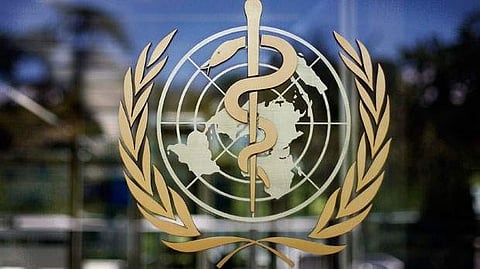Finally, WHO includes Covaxin in its emergency use list of COVID-19 vaccines
NEW DELHI: The World Health Organisation on Wednesday granted emergency use listing to Bharat Biotech’s COVID-19 vaccine Covaxin following months of detailed scrutiny of data from its clinical trials and vaccine development process.
This brings good news to millions of vaccine recipients, international travel plans for many of whom were in limbo as non-approval by the WHO meant that most countries didn’t recognise them as having been “vaccinated” against COVID-19.
WHO’s EUL procedure assesses the quality, safety and efficacy of COVID-19 vaccines and is a prerequisite for COVAX vaccine supply, allowing countries to expedite their own regulatory approval to import and administer vaccines.
“WHO has granted emergency use listing (EUL) to Covaxin (developed by Bharat Biotech), adding to a growing portfolio of vaccines validated by WHO for the prevention of COVID-19,” the agency said in a statement.
It added that the technical advisory group, convened by WHO and made up of regulatory experts from around the world, has determined that Covaxin meets WHO standards for protection against COVID, benefits of the vaccine far outweigh risks and it can be used across the world.
“This emergency use listing expands the availability of vaccines, the most effective medical tools we have to end the pandemic,” said Mariângela Simão, WHO Assistant-Director General for Access to Medicines and Health Products.
“But we must keep up the pressure to meet the needs of all populations, giving priority to the at-risk groups who are still waiting for their first dose, before we can start declaring victory.”
Covaxin, formulated from an inactivated SARS-CoV-2 antigen and presented in single dose vials and multidose vials of 5, 10 and 20 doses, was assessed under the WHO EUL procedure based on the review of data on quality, safety, efficacy, a risk management plan and programmatic suitability.
The vaccine was also reviewed on October 5 by WHO’s strategic advisory group of experts on immunization, which formulates vaccine-specific policies and recommendations for the use of vaccines in populations with details such as recommended age groups, intervals between doses, specific groups such as pregnant and lactating women.
The SAGE recommended use of the vaccine in two doses, with an interval of four weeks, in all age groups of 18 and above.
This vaccine was found to have 78% efficacy against COVID-19 of any severity, 14 or more days after the second dose, and is extremely suitable for low- and middle-income countries due to easy storage requirements, said the UN health agency.
It however added that the available data on vaccination of pregnant women with the vaccine are insufficient to assess vaccine safety or efficacy in pregnancy; studies in pregnant women are planned, including a pregnancy sub-study and a pregnancy registry.
WHO’s EUL procedure assesses the suitability of novel health products during public health emergencies. “The objective is to make medicines, vaccines and diagnostics available as rapidly as possible to address the emergency while adhering to stringent criteria of safety, efficacy and quality. The assessment weighs the threat posed by the emergency as well as the benefit that would accrue from the use of the product against any potential risks.
The EUL pathway involves a rigorous assessment of late phase II and phase III clinical trial data, as well as substantial additional data on safety, efficacy, quality and a risk management plan.
As part of the EUL process, the company producing the vaccine must commit to continue to generate data to enable full licensure and WHO prequalification of the vaccine.
Incidentally, the WHO recognition of Covaxin comes on a day India’s drug regulator approved its application for extending the shelf life from six months to 1 year which will largely help private hospitals clear their stock of the vaccine.

